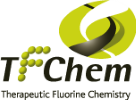Vancouver, British Columbia – March 20, 2013 – Sirona Biochem Corp. (TSX-V: SBM, OTCQX: SRBCF, Frankfurt: ZSB), announced today it has successfully completed the set of industry-standard cosmetic safety tests for both skin lightening compounds, TFC-849 and TFC-723. The final two safety tests studied phototoxicity and skin irritation in accordance with the regulatory methods of the European Centre for the Validation of Alternative Methods (ECVAM) and the Organization for Economic Co-operation and Development (OECD). The successful completion of the safety tests for both compounds means that Sirona Biochem will be releasing two skin lightening compounds for national, multi-national and global licensing agreements.
The phototoxic potential of TFC-849 and TFC-723 was evaluated at a concentration range 0 to 1000 µg/ml for 1 hr on fibroblast cultures, exposed to the highest non-cytotoxic UVA irradiation dose (5 J/cm²). Fibroblasts’ viability was assessed using the neutral red uptake method and compared in both irradiated and non-irradiated cultures. Neither compound (TFC-849 or TFC-723) showed phototoxicity in the concentration range tested.
The irritant potential of TFC-849 and TFC-723 was evaluated on reconstituted human epithelium (RHE) at concentrations 0.5%, 2.5% and 5% (w/v). The RHE viability was assessed using an MTT assay and both depigmenting agents, TFC-849 and TFC-723, showed no skin irritation in the concentration range studied.
“Having both TFC-849 and TFC-723 successfully complete all safety testing is a testament to our scientists and patented technology. Safe and effective skin lightening agents are at a premium in the lucrative cosmetic and dermatologic industries and we have two leading compounds. I’m extremely proud of our team,” said Neil Belenkie, Chief Executive Officer of Sirona Biochem.
It is estimated that more than $7.5 billion was spent on cosmetic skin lighteners in 2009 and that number is expected to exceed $10 billion by 2015. Approximately 15% of the worldwide population invests in skin lightening products with Asia being the largest market. For dermatologists, medical conditions such as hyperpigmentation, melasma, vitiligo and rosacea are also contributing to the demand for safer and more effective skin lightening creams.
No animals were involved in the development and testing of Sirona’s skin lightening compounds.
About the Project
Sirona Biochem’s French subsidiary, TFChem received in November 2011 a $1.9-million grant. This project is co-financed by the European Union and Europe Witnesses in Haute-Normandie with the support of the European Regional Development Fund (E.R.D.F.). A consortium of partners – including the University of Rouen (LMSM EA4312), contract research organization Biogalenys, and TFChem – has been assembled to advance this project. The French government and European Union are looking to promote and initiate collaborative projects that are focused on the development of new products and services containing a high level of innovation.
Neither TSX Venture Exchange nor its Regulation Services Provider (as that term is defined in policies of the TSX Venture Exchange) accepts responsibility for the adequacy or accuracy of this release.
For more information regarding this press release, contact:
Julie Jang
Director, Communications
Sirona Biochem Corp.
Phone: 604.282.6065
Email: jjang@sironabiochem.com
———————————————
Sirona Biochem cautions you that statements included in this press release that are not a description of historical facts may be forward-looking statements. Forward-looking statements are only predictions based upon current expectations and involve known and unknown risks and uncertainties. You are cautioned not to place undue reliance on these forward-looking statements, which speak only as of the date of release of the relevant information, unless explicitly stated otherwise. Actual results, performance or achievement could differ materially from those expressed in, or implied by, Sirona Biochem’s forward-looking statements due to the risks and uncertainties inherent in Sirona Biochem’s business including, without limitation, statements about: the progress and timing of its clinical trials; difficulties or delays in development, testing, obtaining regulatory approval, producing and marketing its products; unexpected adverse side effects or inadequate therapeutic efficacy of its products that could delay or prevent product development or commercialization; the scope and validity of patent protection for its products; competition from other pharmaceutical or biotechnology companies; and its ability to obtain additional financing to support its operations. Sirona Biochem does not assume any obligation to update any forward-looking statements except as required by law.




